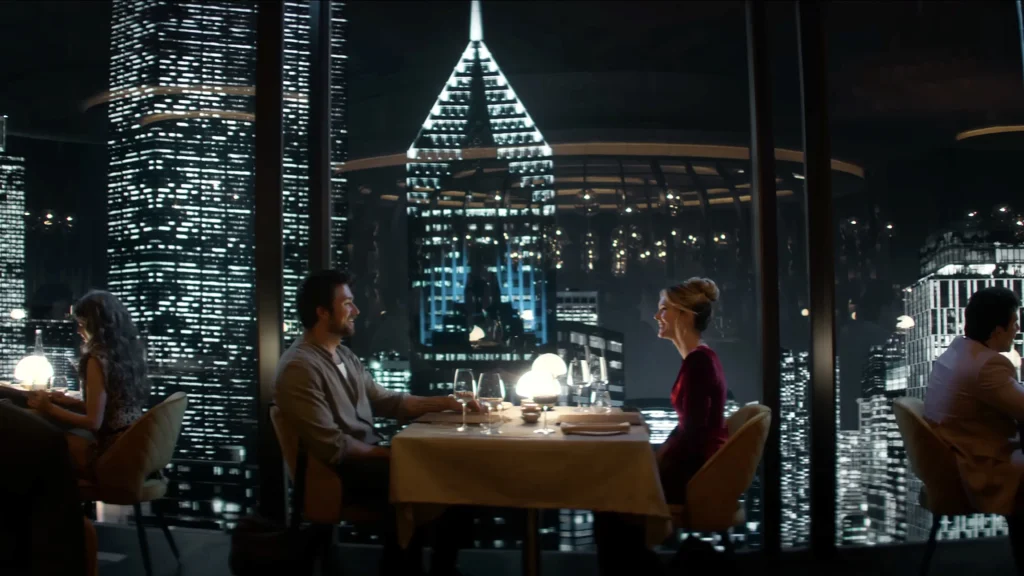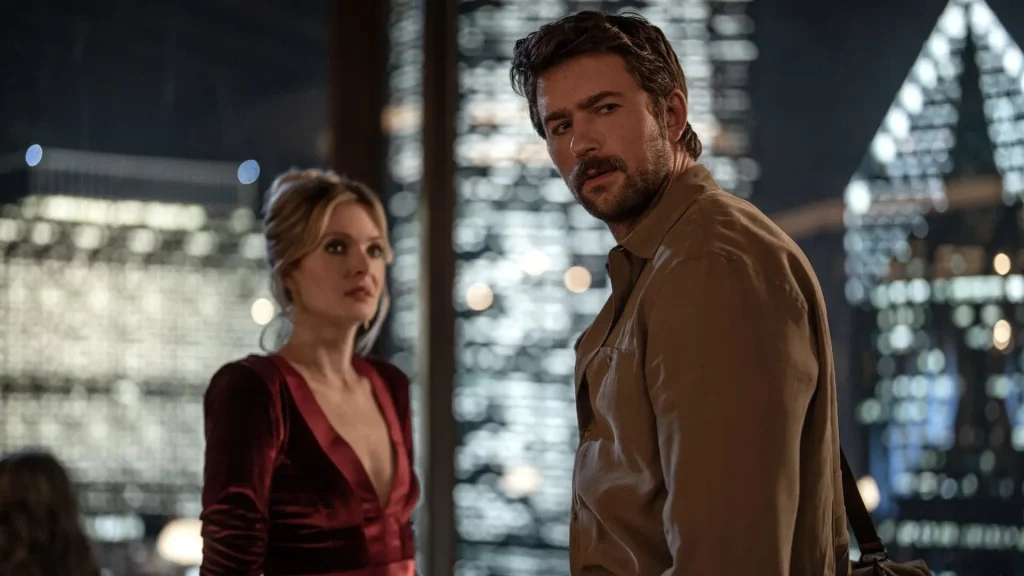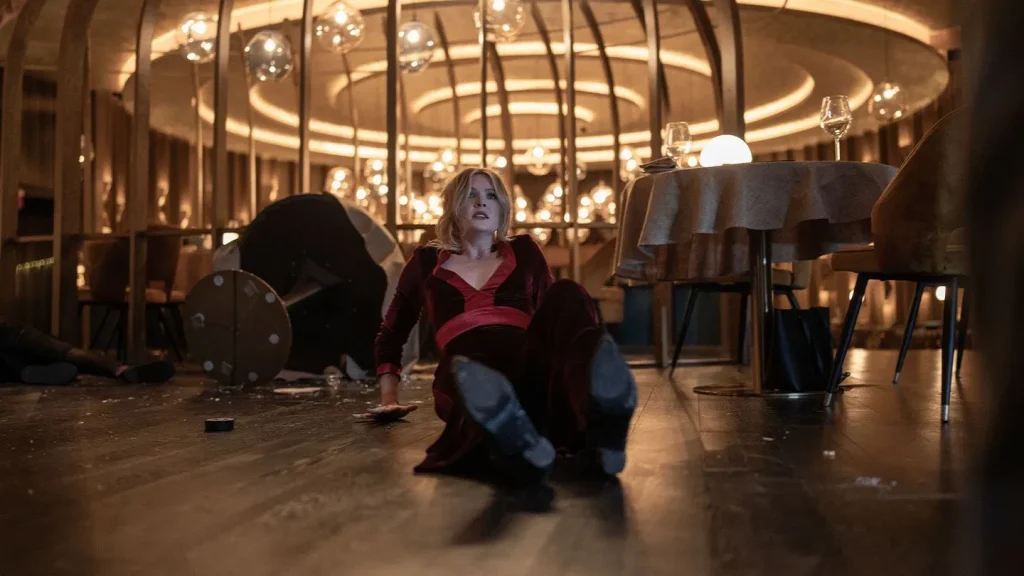
When Violet, a savvy yet guarded young woman, agrees to meet a man she barely knows for a casual first date, the worst she expects is an awkward evening—not a night that spirals into a high-stakes psychological game. A mysterious phone is dropped at her feet—literally—and with it, a chain of cryptic instructions begins. The rules are simple: obey the caller, complete each task, and maybe you’ll make it out unharmed. Refuse, and someone pays the price.
What starts as a strange inconvenience quickly escalates into a public spectacle of humiliation, control, and moral compromise—streamed, tracked, and orchestrated by forces that seem one step ahead. As the night unfolds across bars, bathrooms, and back alleys, Violet becomes both the hunted and the unwilling performer in a twisted social experiment.
In an age where surveillance is sold as safety and privacy is optional, Drop turns the “stranger in a strange game” trope into a claustrophobic commentary on modern fear. With every twist, the film asks: who’s really in control—the victim, the villain, or the audience watching it all unfold?
Some movies ask to be analyzed. Others just want to be watched. Drop is firmly in the second camp—and frankly, that’s part of its charm. It doesn’t beg to be dissected. It dares you to sit back, pop the corn, dim the lights, and ride its ridiculous, relentless wave. I did. And I had fun. Mostly.
This is Christopher Landon in his most self-aware mode. I came into Drop unsure if I’m a Landon fan—I didn’t vibe with Happy Death Day, but Freaky won me over. Drop felt like the decider. The verdict? Still pending… but I’m leaning yes.

Let’s start with the obvious: this movie isn’t reinventing the wheel. If anything, it’s spinning a very familiar one. Think Phone Booth meets Hostel with a sprinkle of You and the glitz of a TikTok horror filter. The concept is pulpy, the logic wobbly, but damn if it doesn’t grip you. Landon knows how to hook an audience—he plants twists like landmines, paces the chaos with a DJ’s instinct, and never lets the tension go stale. Even when you know what’s coming, you want to see how it lands.
Meghann Fahy as Violet? She eats. It’s the kind of performance that doesn’t just carry a movie—it anchors it when the script decides to float off into absurdity. She plays fear and frustration with a grounded intensity that keeps the film tethered to some version of emotional truth, even when the plot leaps into theatrical nonsense. If this movie works—and it often does—it’s because she sells every panic breath and punchline with the same credibility.
But let’s not pretend it’s flawless. The editing? Distracting. Scenes cut like trailers—over-choreographed, overly aware of themselves. At times, the whole thing feels like it was shot for a streaming-era stage play. The lighting choices—those sudden theatrical spotlights, those artificial isolations of characters—might work for some, but for me, they created emotional distance. I wasn’t immersed; I was spectating. Not a deal-breaker, but enough to note.

What Drop nails, however, is mood. It knows exactly what kind of movie it is and leans in unapologetically. It’s trashy fun in the best sense—a Friday night flick made for shared gasps, loud reactions, and post-show debates in the car ride home. There’s no real “shock” in the reveal (you see it coming), and the third act stumbles through a fog of implausibility—but you don’t care. You’re still there. Still watching. Still in.
And isn’t that the secret ingredient? A director who knows when to surprise and when to serve the expected, all while keeping you glued to the screen. Drop may not challenge your intellect, but it satisfies your craving for tension. For entertainment. For that delicious, guilty movie-night fix.
Watch it in theaters. Watch it with friends. Bring snacks.
Forget the logic, enjoy the drop.
Rating: ★★★★★★☆☆☆☆ (6.5/10)
Trashy, twisty, and surprisingly tense. The flaws are loud, but so is the fun.
